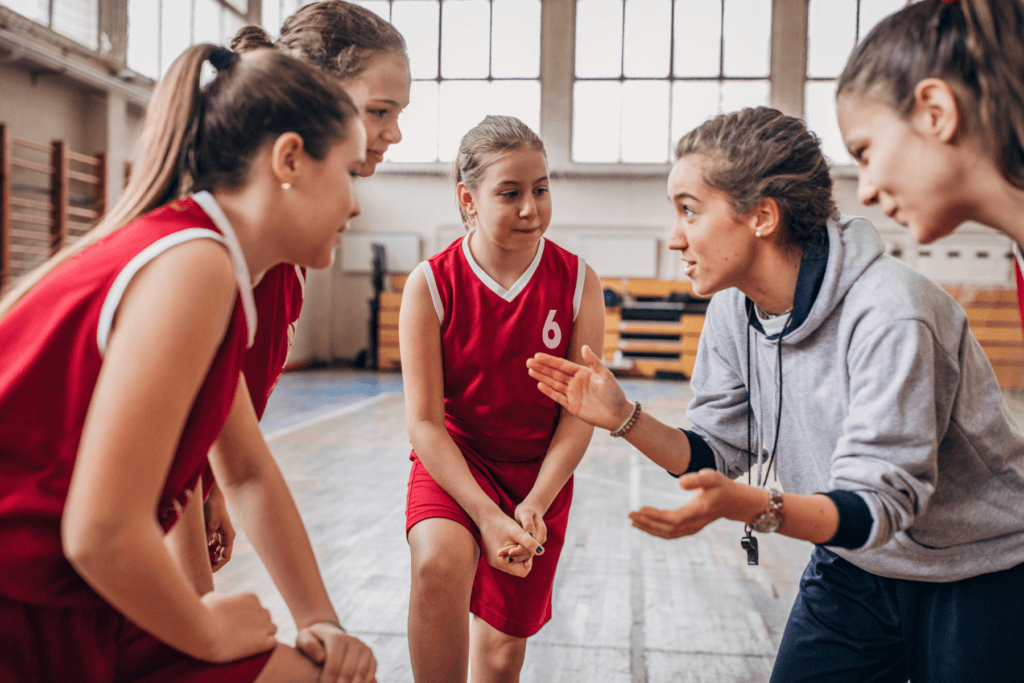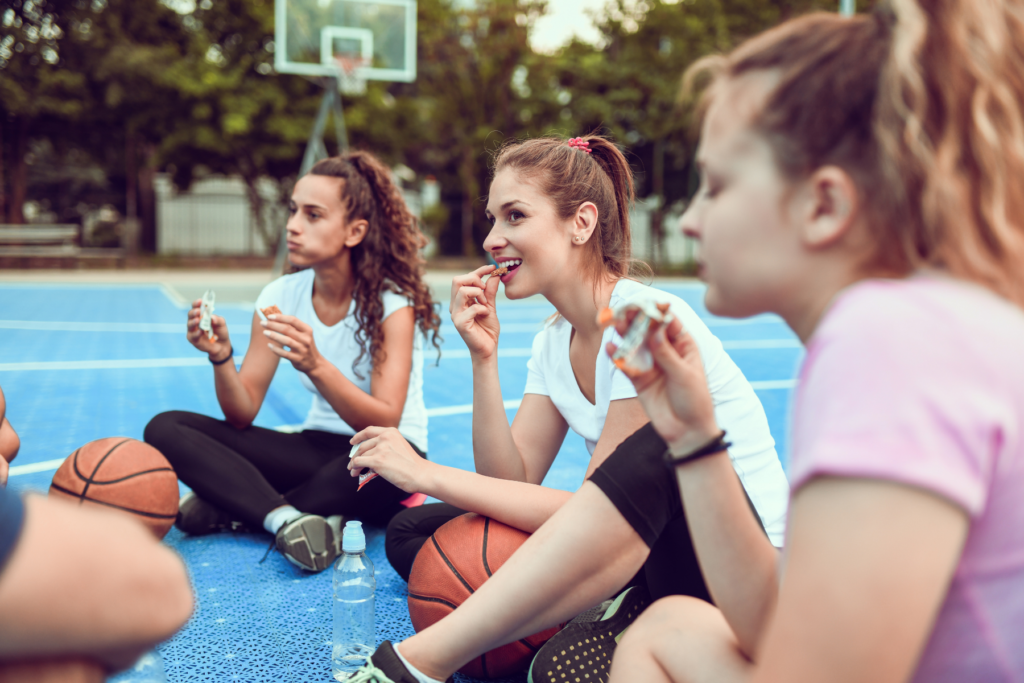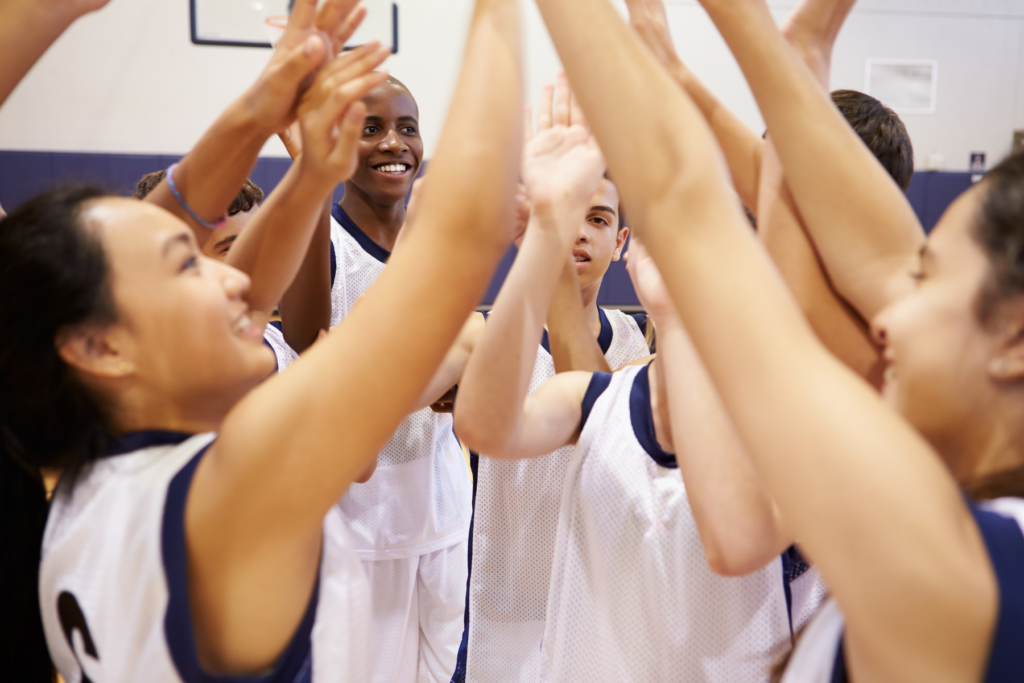Tips for Coaches: Avoiding Body Related Comments
June 27, 2022

There are a few body and eating related comments that come to mind from my own days as a high school athlete:
“Hold that plank a little longer– c’mon, it’s bikini season!”
“Did we have too much pie this Thanksgiving? You all are running slow!”
“If you would lose weight, it would help you run faster.”
My story is not an unusual one amongst athletes. These comments affected my relationship with body image, eating and self worth. However, it wasn’t until I started working in the field of eating disorders that I realized how harmful it was.
Unfortunately, body related comments are common in sports. In particular, athletes in aesthetic and weight class sports like dance, figure skating, track and field/cross country, wrestling and gymnastics. Coaches may not even realize they are causing distress with these comments. Instead, many coaches believe they are motivating and helping their athletes to achieve optimal performance. Thus, it’s important coaches realize the unique and influential role they play in an athlete’s life and how they can reduce harm.
Coaches, here some things to think about before making a body related comment:
Performance is unrelated to body shape and size
Sports showcase just how amazing the human body is. Coaches inspire their athletes to sprint their fastest, throw their hardest, lift their heaviest, and outsmart and outwork their opponents. However, it is simply false and negligent to associate a certain body type or size with athlete’s success.
In fact, focusing too much on an athlete’s body is more likely to lead to behaviors that will only hinder athletic performance. Such a focus may encourage athletes to undereat and avoid taking rest days. Remember: an athlete will be strongest, fastest & most competitive when they are taking care of their bodies & nourishing themselves properly.

Athletes are especially vulnerable to eating disorders
Statistics to show that up to 45% of female athletes and 19% of male athletes struggle with an eating disorder. Why is that? Well, by nature, athletes are competitive. Amidst the long hours spent training, an athlete may start to question whether there is MORE they can be doing to be the best. It makes sense that an athlete may start to compare themselves to other teammates/competitors and fixate on their own bodies. What may start as an innocent pursuit to “eat clean” and properly fuel themselves in their sport can quickly morph into orthorexic tendencies, restrictive eating habits, and food rules.
Rigorous training also usually means a higher caloric output. Combine that with undernourishment and overtraining and an athlete is at high risk for some serious health concerns. For example, cardiovascular issues, GI distress, hormonal complications (changes or loss of menstruation cycles), bone density loss and even organ damage in severe cases.
As a coach, it’s important to be aware that athletes are at high risk for developing an eating disorder. In addition, coaches can help foster a healthful relationship with food, exercise & body respect.
Athletes can’t control their bodies (without drastic measures)
As much as an athlete may desire a different body size or shape, it’s simply not that easy. Size diversity exists amongst all types of people, including athletes. Per the National Eating Disorder Association, “each person’s genetic inheritance influences their bone structure, body size, shape, and weight differently.” Everyone has a wide range of weights that are healthiest for THEIR body called their “setpoint weight”. To maintain a weight lower than someone’s setpoint is only possible with extreme measures like undernourishing or overexercising. Ultimately, these things only result in harm and reduced performance overall.
Coaches, instead of encouraging athletes to change their body, create a safe space where all body types are welcome.

If you are looking for more individualized support when it comes to sports nutrition, our non-diet dietitian team is happy to offer guidance. See our services HERE.
Sources:
https://www.childrens.com/health-wellness/athletes-and-eating-disorders
https://www.nationaleatingdisorders.org/size-diversity-health-every-size